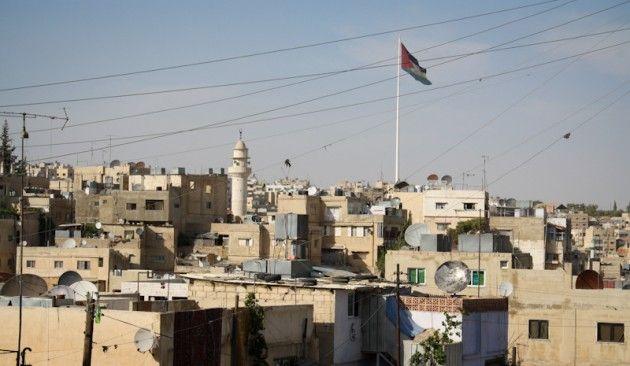Jordan is in a peculiar situation. It is part of an intertwining web of problems that is found nowhere else on earth. Jordan, with its 1.9 million Palestinian refugees, has one of the largest populations of Palestinian refugees in the world. Add the recent refugees from the Iraq War as well as any other person in the Middle East seeking refuge and you have a country that has people searching for a temporary home. The complex situation has also created a complex web of organizations ranging from local government organizations such as the Department of Palestinian affairs, to international humanitarian organizations, and even to UN Mandate organizations such as the UNRWA. These organizations have been mixed in with the complicated Palestinian situation. It is important for us to understand these organizations if we are to understand the Palestinian situation. In the next few blog posts I will try to explain the Palestinian refugee situation and their relationship with these organizations.
The UNRWA
The UNRWA is easily the largest and most involved of the organizations in Jordan. It is an organization that has been around since the creation of the state of Israel in 1948 and now celebrates their bittersweet 60-year anniversary. The UNRWA is a jenga block to the Palestinian conflict. Although there are many blocks, if the UNRWA block would be removed, the whole tower would fall. The refugee camps are under UN Mandate, they have been here since the founding of Israel, and they provide many services that millions of refugees depend on. How could the region maintain stability if the UNRWA was to be disbanded? The UNRWA has been said to be a sign of hope for Palestinians in the Middle East. When people see the UNRWA flag flying over schools, hospitals, or food distribution centers refugees know that the world has not forgotten about them.
Although the UNRWA acts as one of the most positive forces in the Middle East, it has made many mistakes throughout its 60-year history. The UNRWA was created as an “emergency” organization. During the first 1948 war when refugee camps were first created in Jordan, Syria, and Lebanon it was assumed these camps would last until the short conflict was resolved. The UNRWA gave emergency services such as food distribution and health care to the refugees in simple makeshift tents that acted as shelter. As years passed, the realization came that refugees may be staying in their host countries longer than expected. Small houses were soon built for each refugee to stay in. This was the only time shelter would be provided by the UNRWA. All further renovations and expansions would have to be paid for and built by the Palestinians. At this time there were four camps in Jordan.
Twenty years later the famous 1967 War occurred and six more “emergency” camps were set up. More refugees poured into the surrounding Arab countries, causing social and economic problems for the region. Camps were part of the UN Mandate and therefore the UN had full power over these camps. Some countries (such as Jordan) intertwined themselves with the UN. In these camps both the UN and Jordanian law apply and the host country normally takes care of security. Other countries (such as Lebanon) did not want any part with the refugee camps and the UN had to be much more independent.
In the mid-1990s the UNRWA noticed their major fault: they are still providing relief services even though refugees have been a part of their host countries for over 50 years. Instead of helping develop the refugee situation out of poverty they have simply relieved them. Starting in the mid-1990s, the UNRWA started changing their policies to help “develop” refugee camps instead of “relieving” them. Improvement projects were started throughout the camps to provide more public green space, more lighting in houses, and more safety codes. Youth programs were started as well educational programs for adults. These programs have helped bring new life to refugee camps but in many ways the UNRWA is 50 years too late. The old policies have been in place too long and the refugee camps tend to be a place where low socioeconomic status and poverty skyrocket.
With the UNRWA being such an integral part of the refugee situation it is often wondered how much longer the UNRWA will be in existence. The mandate that created the UNRWA requires the organization to provide for Palestinian refugees until a peaceful resolution is created. This could be in one year or sixty years. The UNRWA is committed to providing for refugees as long as needed and evolving themselves to provide for the ever-changing needs of the refugees.
In my next post I will talk about the Department of Palestinian affairs and their relationship with the UNRWA and Jordan.
As always you can check out my blog also at jeffrey.miragefilms.org or email me at [email protected] if you have any questions or comments.
A Bittersweet 60 Years
June 25, 2010
Donate to The Battalion
Your donation will support the student journalists of Texas A&M University - College Station. Your contribution will allow us to purchase equipment and cover our annual website hosting costs.




















